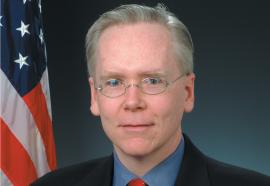A Welcome Truce in the Electricity Wars
Let's enjoy this brief period of diminished acrimony before implementation of this landmark law.
In a time of record high gasoline prices, war, and increasingly shared global climate concerns, it is lamentable that the Energy Policy Act of 2005 does so little to address these critical issues. Within the narrower context of policies primarily affecting the electric power industry, however, this is a much more significant piece of legislation, and it includes a few accomplishments bordering on the extraordinary.











